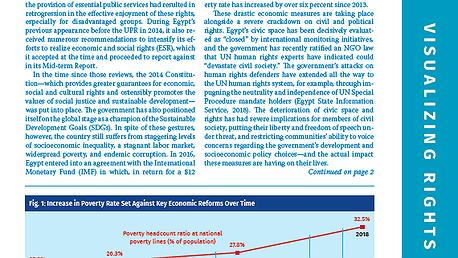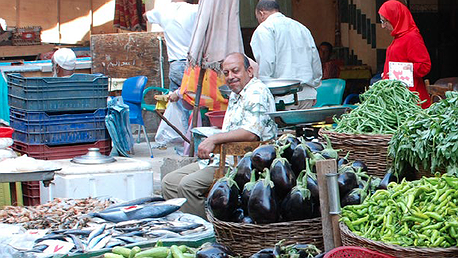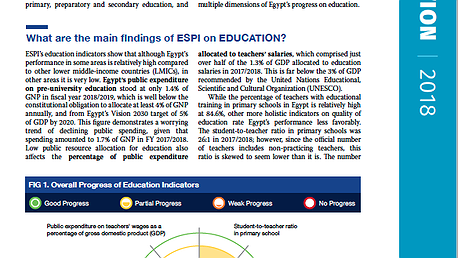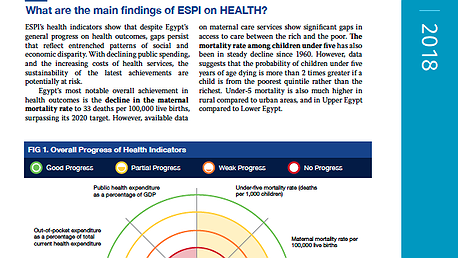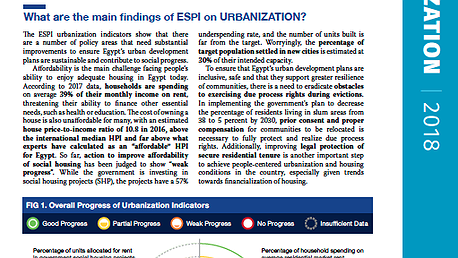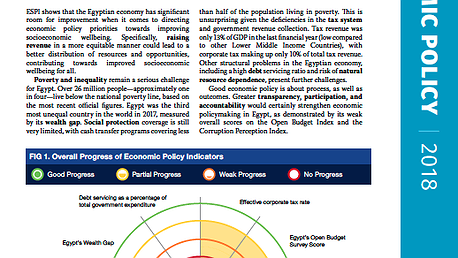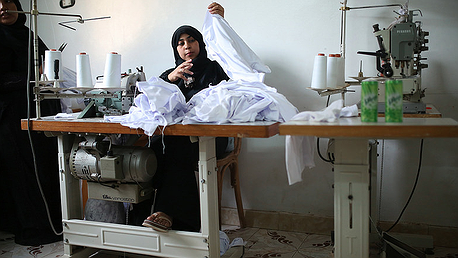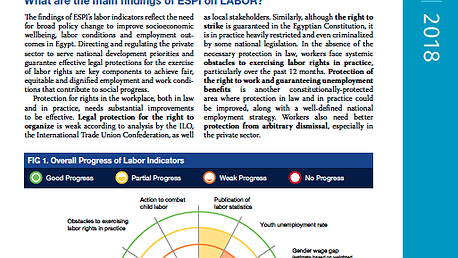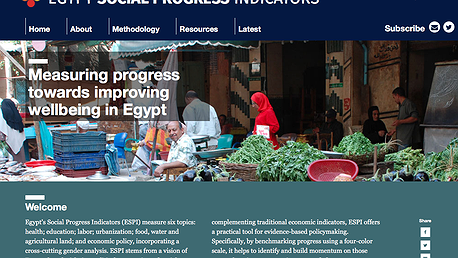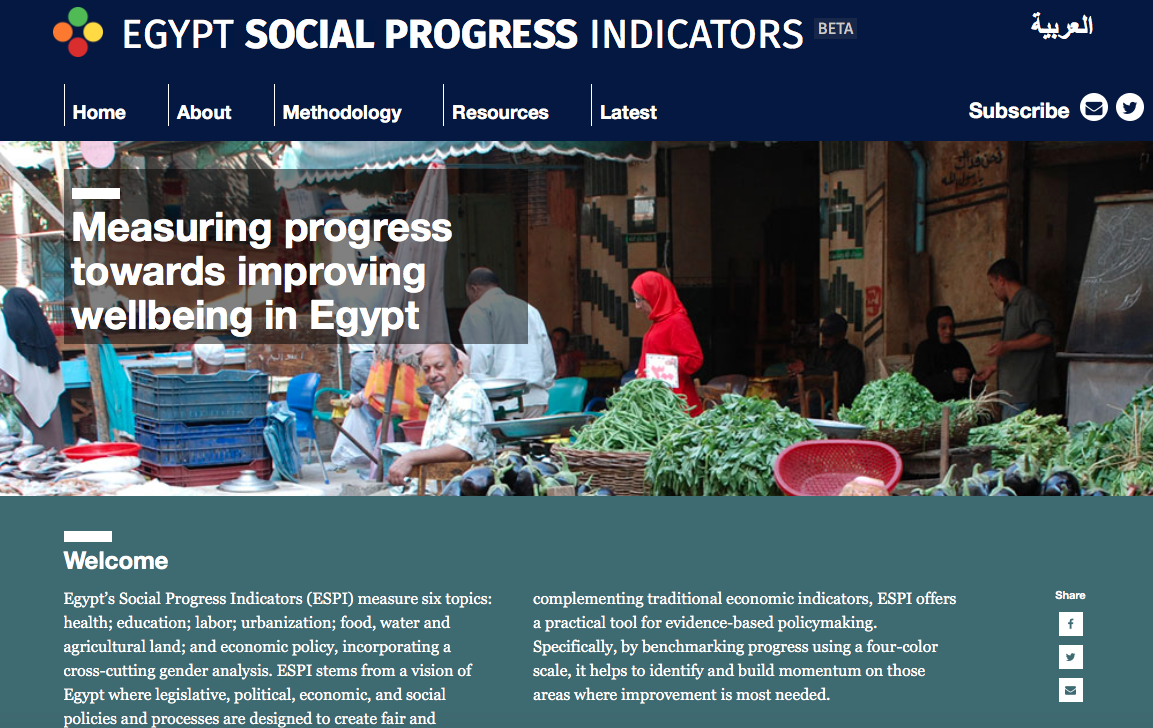
Egypt has positioned itself as a champion of the Sustainable Development Goals (SDGs) in the Global South. Nevertheless, progress on sustainable development has been challenging in Egypt’s current economic climate. Macroeconomic reforms taken in recent years—including those connected to a loan from the IMF—are severely straining living standards for average Egyptians, with millions experiencing serious social and economic rights deprivations. However, the daily reality of those being left behind is not being captured by the narrow set of economic indicators that are used to assert that the Egyptian economy has “turned the corner.” This partial picture is problematic because it ignores rising poverty, inequality and socioeconomic exclusion.
A new metric, developed jointly by CESR and its partners in Egypt, offers a more multidimensional view of the socioeconomic situation in Egypt and its human impacts. Egypt’s Social Progress Indicators (ESPI) measure six topics: health; education; labor; urbanization; food, water, and agricultural land; and economic policy; a cross-cutting gender analysis is incorporated throughout. It uses a four-color scale, to score progress against benchmarks informed by national and international development targets, as well as human rights commitments including recommendations from human rights mechanisms which Egypt has taken on in recent years. By measuring progress in this way, ESPI helps to pinpoint and support advocacy on those areas where improvement on economic and social rights is most pressing.
ESPI reflects a growing trend in efforts to understand a country’s development more holistically than as economic growth, measured as GDP. ESPI is a metric that is grounded in the belief that a rights-based approach to sustainable development is fundamental for achieving social progress. Rights fulfillment has typically been considered difficult to measure, which has been used as an excuse to exclude it from government performance frameworks. ESPI demonstrates that human rights can provide concrete criteria for evaluating government policies.
One of the most distinctive aspects of ESPI is its methodology, which was designed collectively over three years through a series of face-to-face workshops and online activities coordinated by CESR to facilitate skill-sharing, tool development and prototyping. ESPI analyzes socioeconomic progress through the four dimensions of OPERA—CESR’s monitoring framework addressing Outcomes, Policy Efforts, Resources and Assessment—to illustrate the effects that laws, policies, and budgetary decisions have on people’s everyday lives. It includes a mix of fact-based and analytical indicators, measured using quantitative and qualitative data, in order to give a holistic picture of social progress.
CESR plays a leading role in the coordination of the project, providing the stability needed to advance with ESPI through a sustained long-term partnership with the diverse range of individuals and groups involved—a collaboration model based on mutual trust, working on equal footing, privileging local expertise, and tailoring strategies to context.
ESPI is an innovative digital tool that enables a range of actors to track progress in the implementation of commitments Egypt has made regarding economic and social rights and sustainable development, commitments reflected in its Constitution and national development plans. As a methodologically rigorous, evidence-based and civil society-led resource, it is intended to help foster more informed, accountable and participatory decision-making on social, economic and development policies and their impact on people’s lives.
